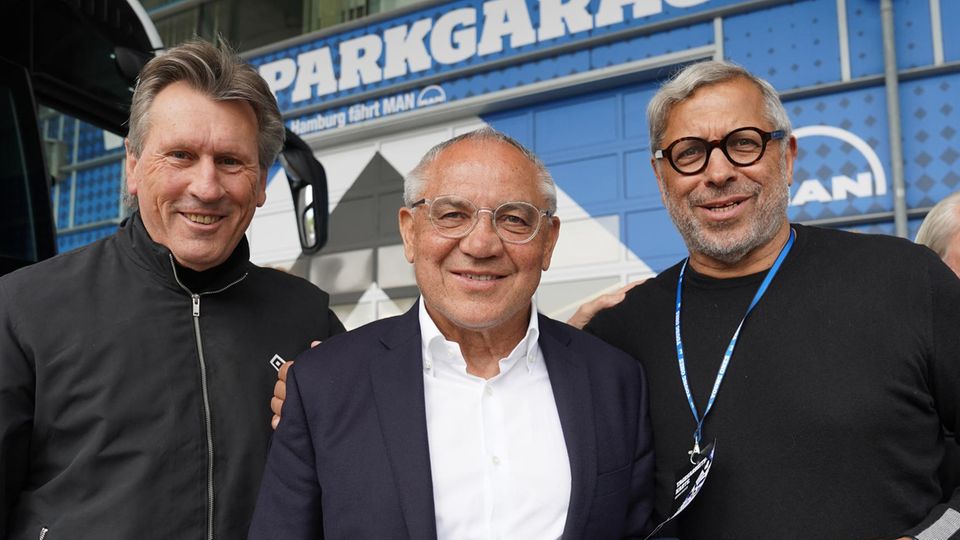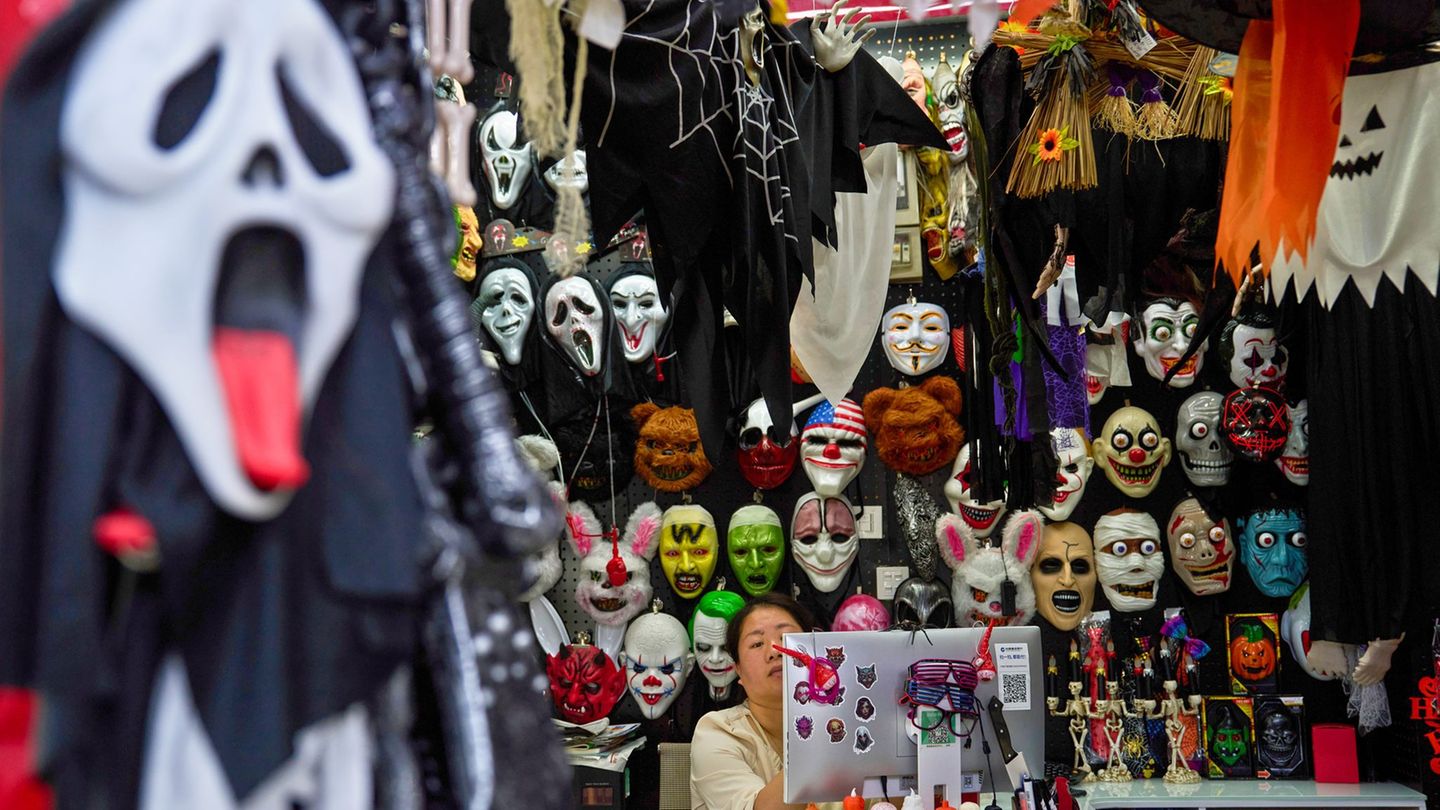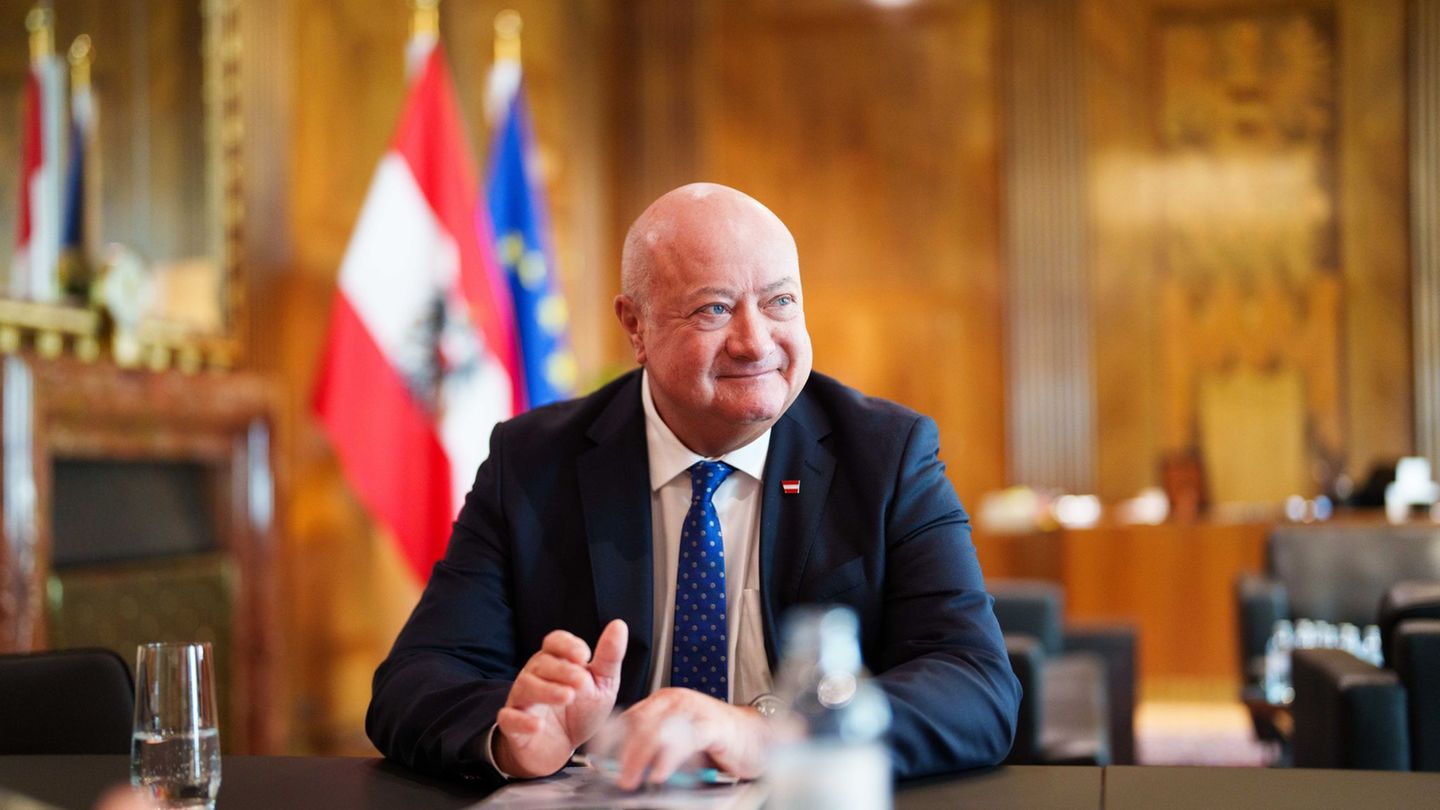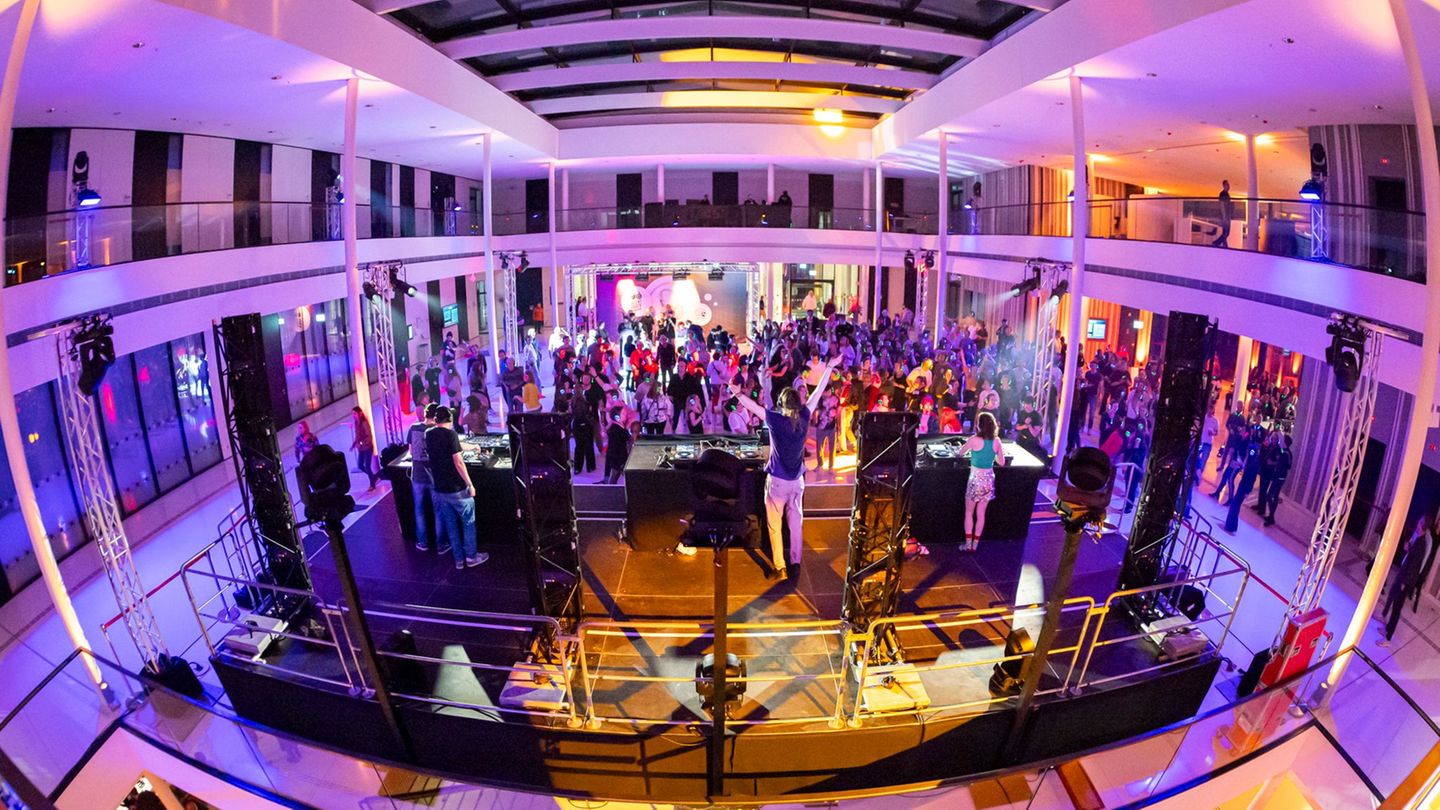HSV was once one of Europe’s football elite. On May 25, 1983, the club won the European Cup. The effect of the glorious success extends to the murky second division present.
This is what HSV heroes of yore look like today: The hair is lighter and grayer, the hips are fuller, the faces of the mature men around 70 show one or the other wrinkle. But their 1-0 triumph in the final of the European Cup against Juventus Turin on May 25, 1983 is as present for the club from Hamburg as it was then – and despite its current second division status it is still an essential part of its self-image.
“At that moment 40 years ago, when you played and won, none of us had the thought that even after so many years it still had such a unique value,” says Bernd Wehmeyer (70) of the Deutsche Presse- Agency. One thought “that other successes or the same success would follow in the next few years or decades,” says the former defender.
HSV goal today: back to the 1st league
But unlike Bayern Munich, for example – the great national adversary of the early 1980s – there were no major international successes in the years and decades that followed. Nothing describes the difference from back then better than today’s goal for the season: For HSV, returning to the Bundesliga after five years in the 2nd division would be a great success this year.
On Saturday, the sold-out Volksparkstadion experienced a touch of the great football history of Hamburger SV in the last second division home game of the season against SpVgg Greuther Fürth. And why the club sees itself as something special. The heroes of Athens were invited and allowed to be cheered on by fans.
Many of the supporters at the stadium could have been her grandchildren. The young generation of fans only knows the greatest success in the 136-year history of their heart club from old TV recordings or from the HSV museum. And yet players like Horst Hrubesch (72), Magath (69), Manfred Kaltz (70) and Ditmar Jakobs (69) enjoy legend status.
Legendary coach Ernst Happel’s team traveled to the final on May 25, 1983 in Athens as outsiders. At that time, Juventus Turin was “what Real Madrid and Manchester City are in European football today,” as Magath said in an interview with “Kicker”. Juve consisted of players from Italy’s 1982 World Cup team plus exceptional French player Michel Platini and Polish world-class man Zbiginiew Boniek.
Soccer Bundesliga
From a deer’s head to condoms to Gazprom – a selection from 50 years of jersey advertising
The Italian team of the later Bayern coach Giovanni Trapattoni appeared accordingly self-confident. During the field inspection in the Olympic Stadium, there was a brief encounter between the two teams. The HSV players were on the field in tracksuits when the Italians stepped onto the pitch in their smart suits.
“They came onto the pitch once and took a look. Like the motto: Let’s do it in passing,” remembers goalkeeper Uli Stein (68). “In the end, they gave us the final kick. We said: We’ll show you.”
Juve’s goalkeeper legend Dino Zoff rejects that. “It’s all nonsense! Of course we were favourites, Italy was world champions, and we also had Platini. So everyone guessed us,” said the 81-year-old in a DPA interview. “But the fact that we already thought about the celebration after the game before the game: now let’s not exaggerate.”
Magath’s decisive goal came early. After a pass from Jürgen Groh, the playmaker hit the corner. Unbearable for world champion goalkeeper Zoff, as Magath likes to emphasize. Just over an hour and a half later, Captain Hrubesch lifted the pot into the Greek night sky.
HSV only plays twice in the Champions League
“Father of success” for Wehmeyer was manager Günter Netzer. “In the end, that’s how he put this team together,” says today’s Vice President of HSV eV Netzer came to Hamburg a year after HSV won the European Cup Winners’ Cup in 1977 and had the courage to initiate a change and made it through players from the 2 th league like Hrubesch, Wehmeyer or Jimmy Hartwig to replace.
He brought in Branko Zebec as coach, who led the club to the championship title in 1979 and in 1980 already reached the final of the National Champion Cup against Nottingham Forest (0-1). Two more German championships (1982, 1983) followed under the Austrian Ernst Happel, who was famous as a grumbler. Netzer left in 1986, Happel, who died in 1992, said goodbye in 1987 with the DFB Cup victory.
“In the end, it’s a shame that we still have to remember it and that HSV didn’t manage to get anywhere close to those times,” says ex-national goalkeeper Stein. In Germany they were what Bayern Munich is today. “We fought with Bayern back then, but we were still a bit better than Bayern,” says the native of Hamburg. “And then you can see what has become of Bayern and what has become of HSV. The city deserves more.”
34th matchday
These are the most conspicuous heads of the past Bundesliga season
According to Wehmeyer, HSV lacked continuity in terms of personnel after Netzer’s time compared to Bayern. “Bayern had had the excellent specialist in Uli Hoeneß for decades,” he says. Franz Beckenbauer and Karl-Heinz Rummenigge came later and helped shape the club for a long time. “That is crucial for Bayern’s success.”
HSV played twice (2000/2001 and 2006/2007) in the Champions League, the successor competition to the European Cup. In the semi-finals of the 2009 Uefa Cup, the club lost to Werder Bremen in 2009 and a year later to FC Fulham in the semi-finals of the newly introduced Europa League. After that, the club went downhill more and more – until relegation in 2018. A mixture of vanity, incompetence and economic undesirable developments led to this.
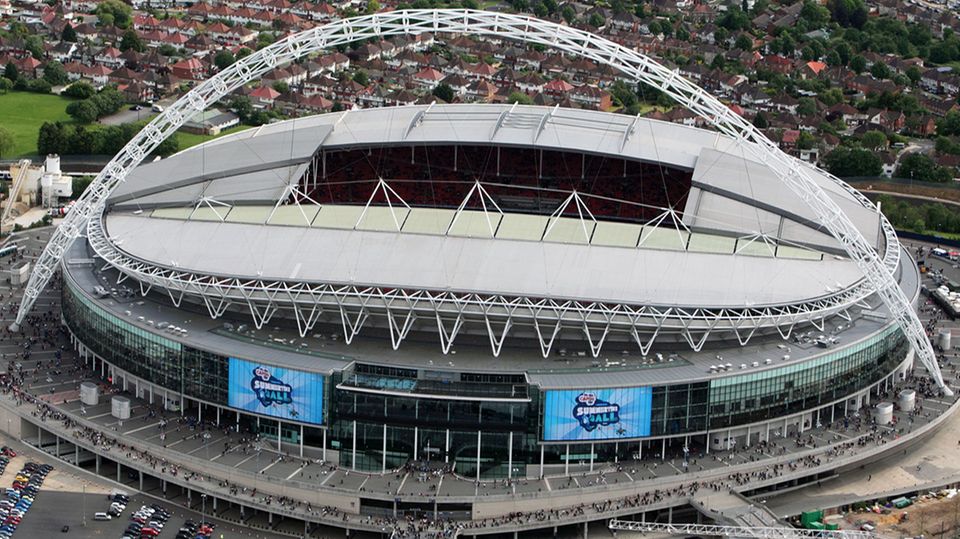
For five years, Hamburger SV has been trying to get back to where it thinks it belongs. Coach Tim Walter never tires of emphasizing that HSV is something special. The power that the club is still developing is reflected in the number of spectators. The average in the second division is just over 53,500 visitors. In the Bundesliga, only four clubs have higher visitor numbers.
When the 83 players meet, the talks are always about HSV. “He’s our heart club,” Stein assures. “Many hearts bleed when we see what has developed in recent years.” Jimmy Hartwig appeals to the current generation of players: “Wearing the rhombus is an honour. If you don’t understand that, you should go somewhere else and breed horses.”
Source: Stern
I am Pierce Boyd, a driven and ambitious professional working in the news industry. I have been writing for 24 Hours Worlds for over five years, specializing in sports section coverage. During my tenure at the publication, I have built an impressive portfolio of articles that has earned me a reputation as an experienced journalist and content creator.

